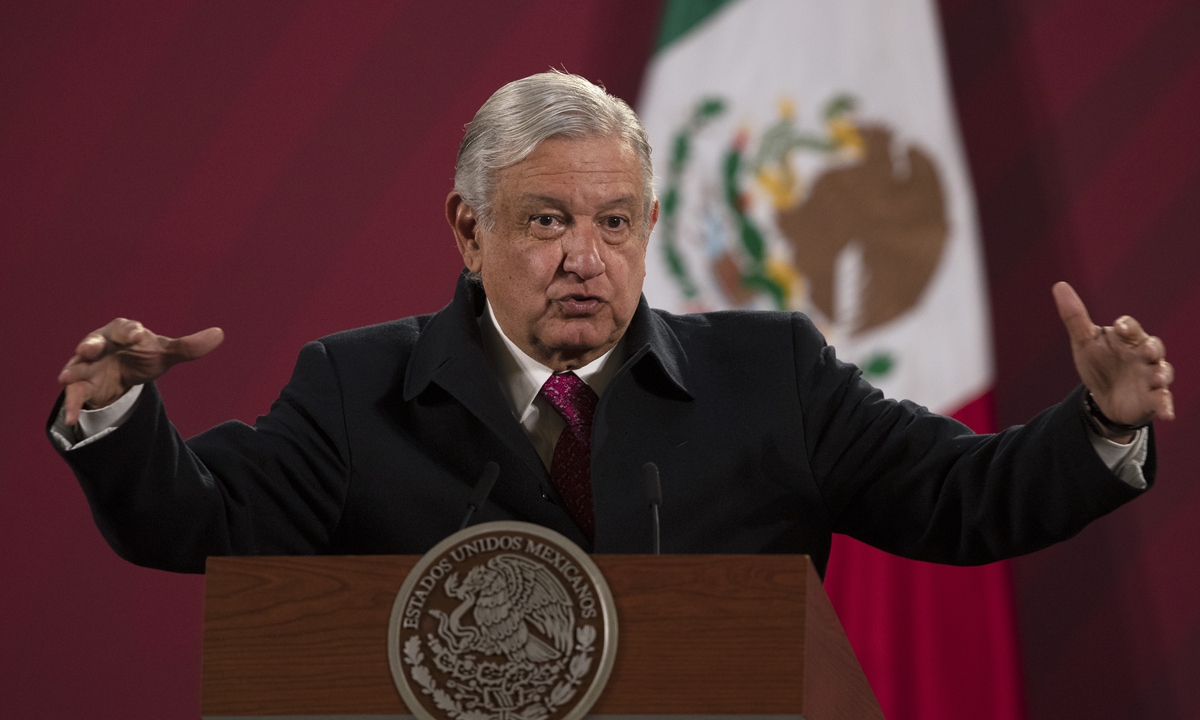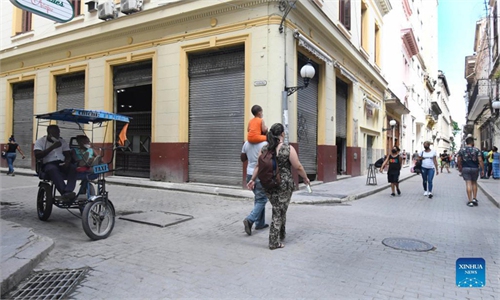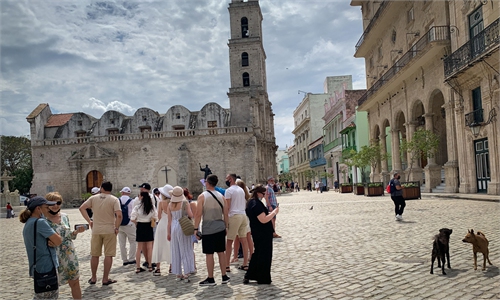
Mexican President Andres Manuel Lopez Obrador tweeted on Sunday that he has tested positive for COVID-19. This file photo shows him giving his daily morning news conference at the presidential palace, Palacio Nacional, in Mexico City on December 18, 2020. Photo: IC
Mexico's President Andres Manuel Lopez Obrador called Sunday for an end to US sanctions against Cuba as he concluded a migration-themed tour of Central America and the Caribbean.During the trip, Lopez Obrador urged the US - where many migrants are headed - to help solve underlying economic problems fueling the wave.
Cuba has seen its own exodus accelerate, with more than 78,000 of its nationals arriving in the US via Mexico from October 2021 to March 2022, according to US customs data.
The wave has been fueled by its worst economic crisis in nearly three decades, which it blames in large part on six decades of US sanctions that were tightened under Donald Trump.
On Sunday, Lopez Obrador said he would continue to insist that the US lift what he called a blockade against the island nation.
Many thousands of US-bound undocumented migrants, most of them Central Americans, cross Mexico's southern frontier each year fleeing poverty and violence.
In 2021 alone, Mexican authorities detected more than 300,000 irregular migrants.
US Customs and Border Protection officials have registered 7,800 undocumented migrants a day along the border with Mexico in recent weeks - almost five times the average in 2014-19.
Lopez Obrador argued on his trip that migration from Latin America was "the result of the difficult conditions in our countries, from the Rio Grande to the south."
"The will of Latin Americans is not enough; we also need the United States to become clearly involved in solving a problem that also affects it and to contribute to financing job creation projects," he said in Honduras.
AFP



